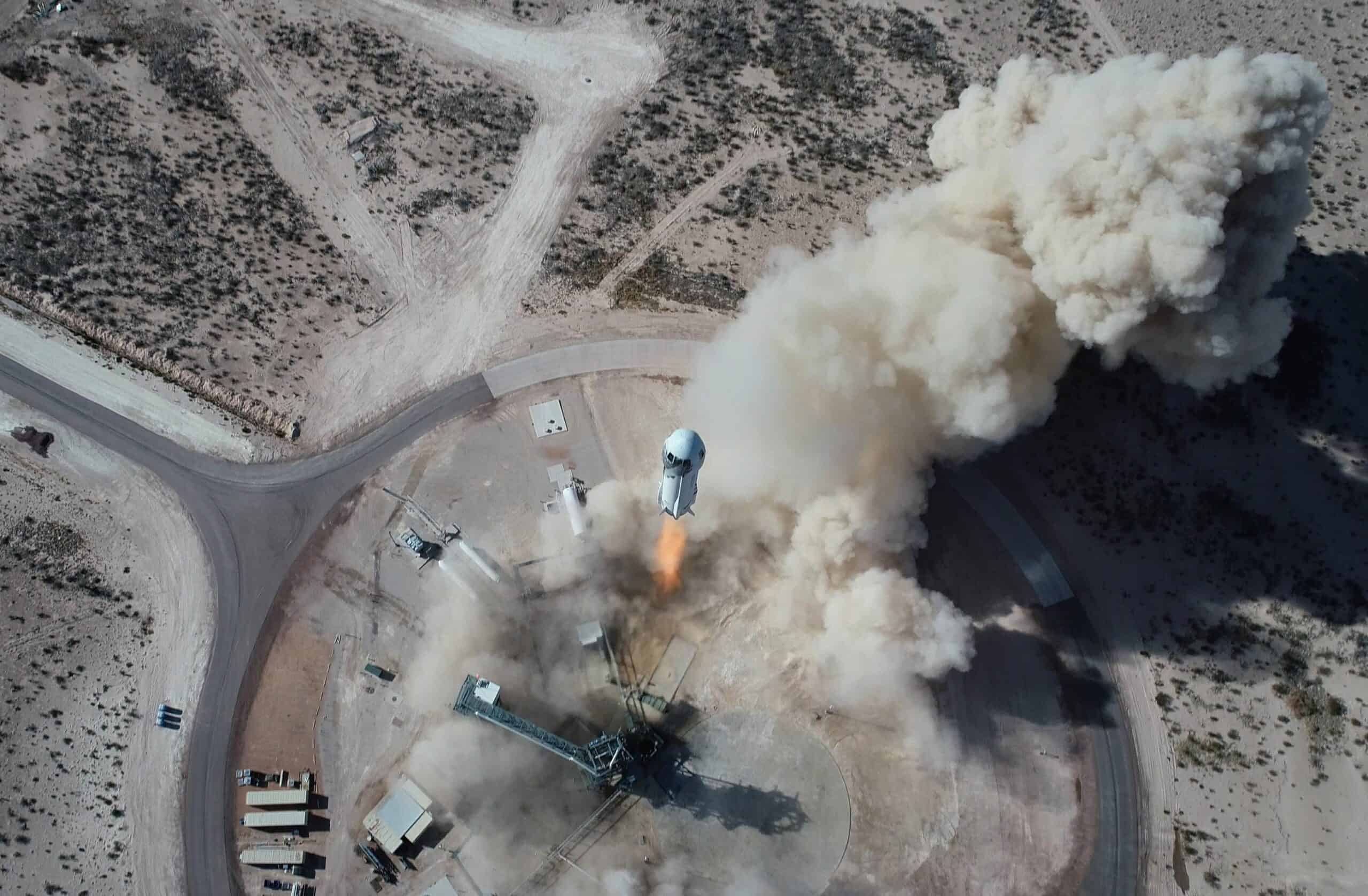-
Bezos, his brother, the bidder and the fourth and final crew member will fly to the edge of space and back on July 20
-
This will be the first crewed spaceflight of the billionaire’s company, Blue Origin
A mystery bidder paid $28 million at auction on Saturday for a seat alongside Jeff Bezos on board the first crewed spaceflight of the billionaire’s company Blue Origin next month.
The Amazon founder revealed this week that both he and his brother Mark would take seats onboard the company’s New Shepard launch vehicle on July 20, to fly to the edge of space and back.
The Bezos brothers will be joined by the winner of Saturday’s charity auction, whose identity remains unknown, and by a fourth, as yet unnamed space tourist.
“The name of the auction winner will be released in the weeks following the auction’s conclusion,” tweeted Blue Origin following the sale.
“Then, the fourth and final crew member will be announced — stay tuned.”
Saturday’s successful bidder beat out some 20 rivals in an auction launched on May 19 and wrapped up with a 10-minute, livecast frenzy.
Bidding had reached $4.8 million by Thursday, but shot up spectacularly in the final live auction, rising by million-dollar increments.
The proceeds — aside from a six percent auctioneer’s commission — will go to Blue Origin’s foundation, Club for the Future, which aims to inspire future generations to pursue careers in STEM — science, technology, engineering and mathematics.
Taking off from a desert in western Texas, the New Shepard trip will last 10 minutes, four of which passengers will spend above the Karman line that marks the recognized boundary between Earth’s atmosphere and space.
After lift-off, the capsule separates from its booster, then spends four minutes at an altitude exceeding 60 miles (100 kilometers), during which time those on board experience weightlessness and can observe the curvature of Earth.
The booster lands autonomously on a pad two miles from the launch site, and the capsule floats back to the surface with three large parachutes that slow it down to about a mile per hour when it lands.
Bezos, who announced earlier this year he is stepping down as Amazon’s chief executive to spend more time on other projects including Blue Origin, has said it was a lifelong dream to fly into space.
Blue Origin’s New Shepard has successfully carried out more than a dozen uncrewed test runs from its facility in Texas’ Guadalupe Mountains.
“We’re ready to fly some astronauts,” said Blue Origin’s director of astronaut and orbital sales, Ariane Cornell, on Saturday.
The reusable suborbital rocket system was named after Alan Shepard, the first American in space 60 years ago.
The automated capsules with no pilot have six seats with horizontal backrests placed next to large portholes, in a futuristic cabin with swish lighting. Multiple cameras help immortalize the few minutes the space tourists experience weightlessness.
Blue Origin’s maiden crewed flight comes in a context of fierce competition in the field of private space exploration — with Elon Musk’s SpaceX, and Virgin Galactic, founded by British billionaire Richard Branson, all jostling for pole position.
Bezos has a very public rivalry with Musk, whose SpaceX is planning orbital flights that would cost millions of dollars and send people much further into space.
SpaceX has already begun to carry astronauts to the International Space Station and is a competitor for government space contracts.
Virgin Galactic, meanwhile, hopes to begin regular commercial suborbital flights in early 2022, with eventual plans for 400 trips a year.
Some 600 people have booked flights, costing $200,000 to $250,000 — and there has been talk of Branson himself taking part in a test flight this summer, although no date has been set.








